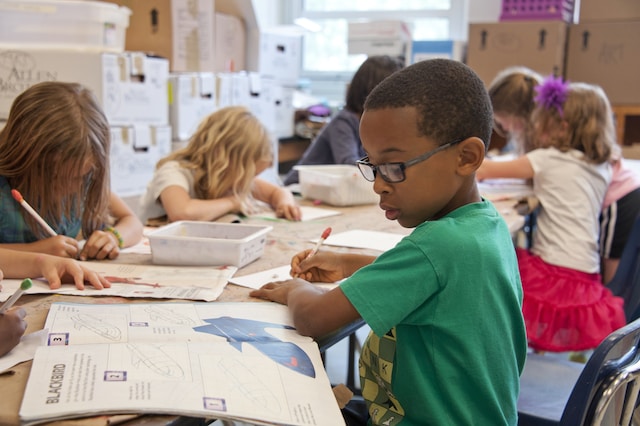Introduction: In a bold move to defend intellectual freedom and challenge censorship, a lawsuit has been filed against a Florida school district over its book restrictions. This groundbreaking case has ignited a passionate debate about the limits of educational censorship and the importance of providing students with diverse and thought-provoking literature. This article delves into
Introduction:
In a bold move to defend intellectual freedom and challenge censorship, a lawsuit has been filed against a Florida school district over its book restrictions. This groundbreaking case has ignited a passionate debate about the limits of educational censorship and the importance of providing students with diverse and thought-provoking literature. This article delves into the details of the lawsuit, explores the arguments from both sides, and sheds light on the broader implications for academic freedom.
1. Unveiling the Lawsuit:
The lawsuit, filed by concerned individuals and advocacy groups, takes aim at the book restrictions imposed by a Florida school district. The plaintiffs argue that these limitations violate students’ First Amendment rights and deny them access to a rich variety of literature that fosters critical thinking, empathy, and a deeper understanding of the world. The case has gained national attention as it challenges the notion of educational censorship.
2. The Battle for Intellectual Freedom:
At the heart of the lawsuit is the battle for intellectual freedom within educational institutions. Advocates for the plaintiffs argue that schools should prioritize exposing students to diverse ideas and perspectives, even if they may be controversial or challenging. They contend that restricting access to certain books stifles intellectual growth, limits creativity, and denies students the opportunity to develop essential skills such as critical thinking and empathy.
3. Examining the Arguments:
Defenders of the book restrictions argue that they are in place to protect students from potentially objectionable or age-inappropriate content. They claim that the limitations are a responsible approach to maintain a safe and comfortable learning environment. However, critics argue that such restrictions can hinder students’ educational experiences, impede their intellectual curiosity, and limit their exposure to diverse cultures and ideas.
4. The Impact on Education:
The outcome of this lawsuit has far-reaching implications for education in Florida and beyond. It raises fundamental questions about the role of schools in shaping students’ intellectual development and their responsibilities in fostering an environment that encourages open-mindedness and critical thinking. It also prompts a broader discussion about the balance between protecting students and allowing them to explore challenging and thought-provoking literature.
5. The Future of Academic Freedom:
This lawsuit serves as a crucial test for the future of academic freedom and the ability of educational institutions to provide a well-rounded education. It calls into question the limits of censorship within the educational system and challenges the notion that controversial or challenging books should be excluded from the curriculum. The resolution of this case could set a precedent for the treatment of book restrictions in schools across the country.
Conclusion:
The lawsuit challenging book restrictions in a Florida school district has thrust the issue of censorship and intellectual freedom into the spotlight. As the legal battle unfolds, it highlights the importance of promoting a diverse and inclusive learning environment that encourages critical thinking and the exploration of different perspectives. The outcome of this case will shape the future of academic freedom and determine the extent to which students can engage with thought-provoking literature. It is a pivotal moment in the ongoing struggle to safeguard intellectual freedom within educational institutions.

















Leave a Comment
Your email address will not be published. Required fields are marked with *